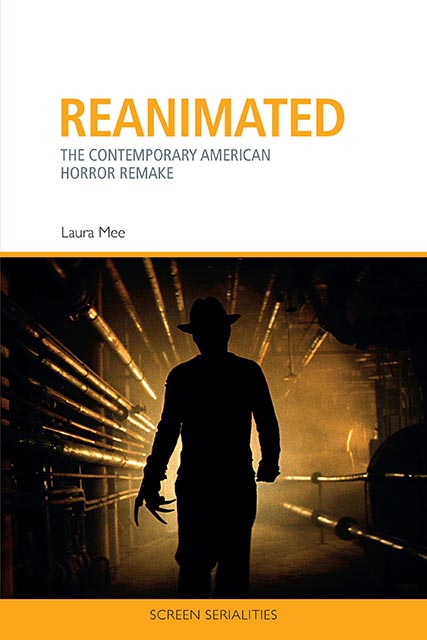Book contents
- Frontmatter
- Contents
- List of Figures
- Acknowledgements
- Chapter 1 Horror Reanimated: The Rise of the Remake
- Chapter 2 Defining and Defending the Horror Remake
- Chapter 3 Re-Writing Horror Mythology in the Platinum Dunes Reboot
- Chapter 4 Distinction and Difference in the Slasher Remake
- Chapter 5 Cultural Anxieties and Ambiguities in Post-9/11 Remakes
- Chapter 6 Gender and Genre in the Rape-Revenge Remake
- Conclusion. ‘The Devil Never Dies’: Recent Horror Remakes
- Bibliography
- Films and Television Programmes
- Index
Chapter 3 - Re-Writing Horror Mythology in the Platinum Dunes Reboot
Published online by Cambridge University Press: 10 August 2023
- Frontmatter
- Contents
- List of Figures
- Acknowledgements
- Chapter 1 Horror Reanimated: The Rise of the Remake
- Chapter 2 Defining and Defending the Horror Remake
- Chapter 3 Re-Writing Horror Mythology in the Platinum Dunes Reboot
- Chapter 4 Distinction and Difference in the Slasher Remake
- Chapter 5 Cultural Anxieties and Ambiguities in Post-9/11 Remakes
- Chapter 6 Gender and Genre in the Rape-Revenge Remake
- Conclusion. ‘The Devil Never Dies’: Recent Horror Remakes
- Bibliography
- Films and Television Programmes
- Index
Summary
From the beginning of the horror remake boom, key production trends and notable industry figures were established, with many more becoming relevant throughout the 2000s. While numerous directors (Marcus Nispel, Alexandre Aja, Nelson McCormick, Glen Morgan), writers (Eric Heisserer, Scott Kosar, Roberto Aguirre-Sacasa, Alexandre Aja and Grégory Levasseur) and actors (Katie Cassidy, Danielle Panabaker, Jaime King, Ving Rhames) were involved in more than one remake, the creation of production companies that specialised in genre adaptations represented a significant development for both horror cinema and remaking practices. Vertigo Entertainment, for example, was co-founded by the professed ‘king of remakes’, Roy Lee. Lee had acted as a third-party broker on a deal between Dream-Works and the Japanese distributors of Ring, resulting in the successful remake The Ring. Using Lee as an intermediary to secure the remake rights of Asian genre films for American studios, Vertigo was initially responsible for new – and largely profitable – adapted versions of The Grudge, Dark Water and The Eye (David Moreau and Xavier Palud, 2008) among others (Xu 2005), before producing other remakes from America and Europe such as The Invasion, Quarantine and Poltergeist (Gil Kenan, 2015); original horror films such as The Strangers (Bryan Bertino, 2008) and The Voices (Marjane Satrapi, 2014); key sequels such as Blair Witch (Adam Wingard, 2016) and Doctor Sleep (Mike Flanagan, 2019); and eventually adding television adaptations to their roster, such as Bates Motel and The Exorcist (Fox, 2016–17). Other companies – including Strike Entertainment (Dawn of the Dead, The Thing), Dimension Films (Black Christmas, Halloween, Piranha) and Screen Gems (When A Stranger Calls, The Stepfather, Straw Dogs, Carrie) – were involved in the production or distribution of multiple horror remakes.
As I will argue in this chapter, the company Platinum Dunes played a role in the 2000s American horror remake cycle more significant than any other production house. It did so, firstly, by initiating it with The Texas Chainsaw Massacre in 2003; secondly, by being responsible for some of the better-known remake titles of the decade; thirdly, for introducing a (financially) successful formula for rebooting key domestic horror franchises; and, finally, via visible involvement at key stages of production and promotion, connecting new versions under a distinct Platinum Dunes ‘brand’.
- Type
- Chapter
- Information
- ReanimatedThe Contemporary American Horror Remake, pp. 46 - 74Publisher: Edinburgh University PressPrint publication year: 2022



